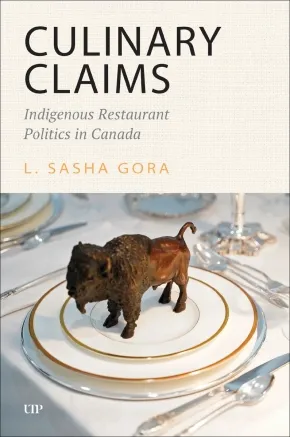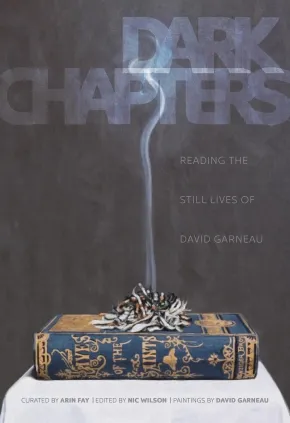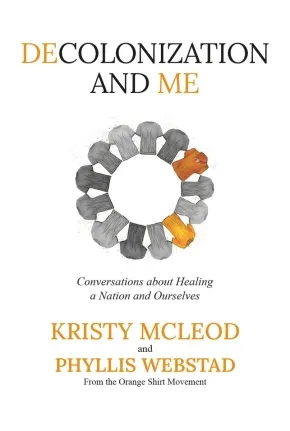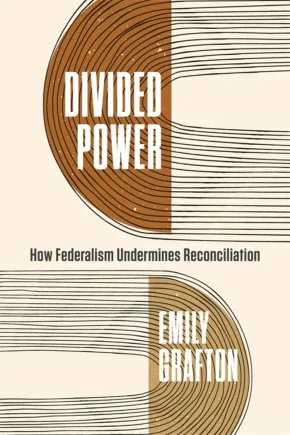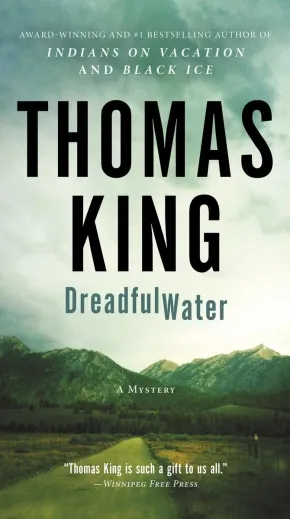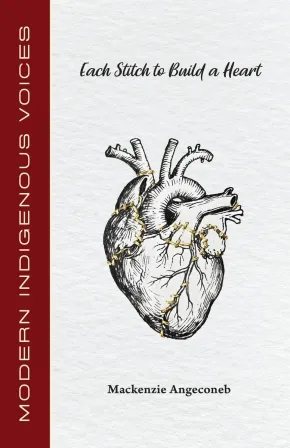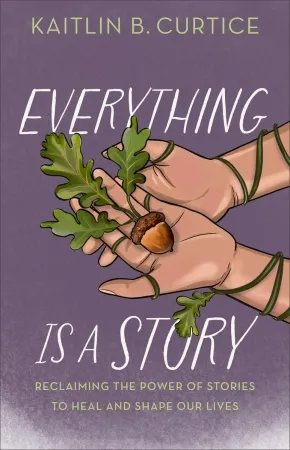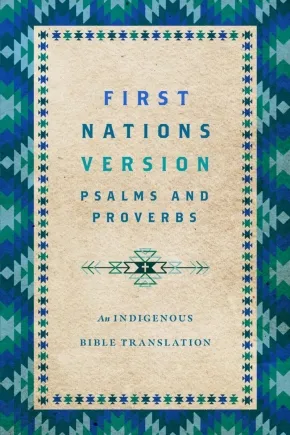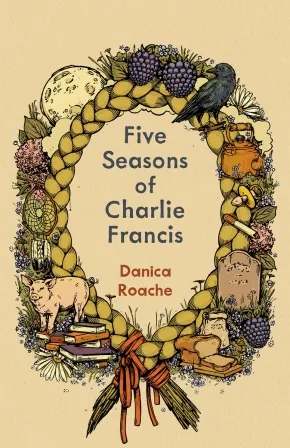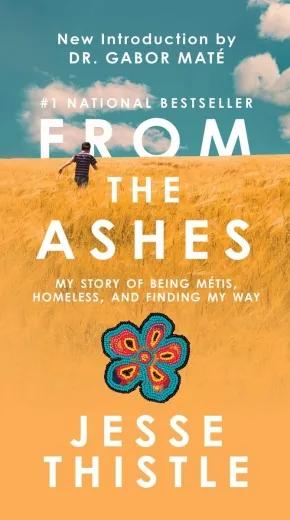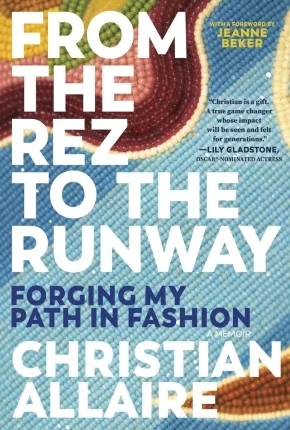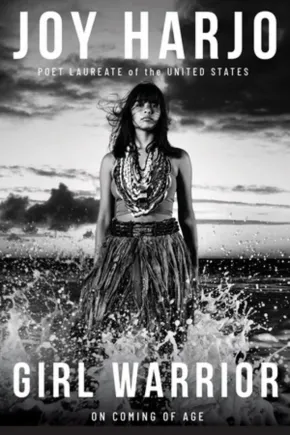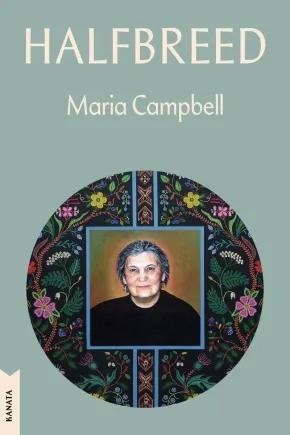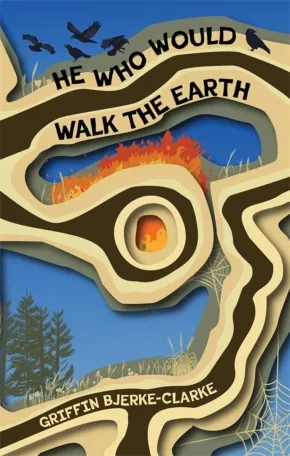
Books
46
-
60
of
1951 Results;
Sort By
Go To
of 131
Culinary Claims: Indigenous Restaurant Politics in Canada
$34.95
Format:
Paperback
Text Content Territories:
Indigenous Canadian;
Reading Level: N/A
ISBN / Barcode: 9781487544751
Synopsis:
Synopsis:
Culinary Claims explores the complex relationships between wild plants and introduced animals, Indigenous foodways, and Canadian regulations. Blending food studies with environmental history, the book examines how cuisines reflect social and political issues related to cultural representation, restaurants, and food sovereignty.
L. Sasha Gora chronicles the rise of Indigenous restaurants and their influence on Canadian food culture, engaging with questions about how shifts in appetite reflect broader shifts in imaginations of local environments and identities. Drawing on a diverse range of sources – from recipes and menus to artworks and television shows – the book discusses both historical and contemporary representations of Indigenous foodways and how they are changing amid the relocalization of food systems.
Culinary Claims tells a new story of settler colonialism and Indigenous resistance, emphasizing the critical role that restaurants play in Canada’s cultural landscape. It investigates how food shapes our understanding of place and the politics that underpin this relationship. Ultimately, the book asks, What insights can historians gain from restaurants – and their legacies – as reflections of Indigenous and settler negotiations over cultural claims to land?
Educator Information
Subjects: Business; History / Canadian History; History / Business & Economic History; Food Studies / Food in History; Indigenous Studies / Indigenous History
Table of Contents
List of Illustrations
Preface
Introduction: You Are Welcome
1. Agricultural Flagpoles
2. From Trains to Tundra
3. Restaurants and Representation
4. An Edible Exhibition
5. One Address, Three Restaurants
6. A Meal for a Chief
7. Culinary Resurgence
8. Seal Tartare
9. Where the Beaver and Buffalo Roam
10. Salmon and the F-Word
Conclusion: The North
Acknowledgements
Notes
Bibliography
Index
Additional Information
392 pages | 6.00" x 9.00" | 34 illustrations | Paperback
Dark Chapters: Reading the Still Lives of David Garneau
$32.95
Artists:
Editors:
● Arin Fay
Format:
Paperback
Text Content Territories:
Indigenous Canadian; Métis;
ISBN / Barcode: 9781779400536
Synopsis:
Synopsis:
A singular collection of responses to the still life paintings of acclaimed artist David Garneau
Dark Chapters brings together 17 poets, fiction writers, curators, and critics to engage with the works of David Garneau, the Governor General’s Award-winning Métis artist. Featuring paintings from Garneau’s still life series “Dark Chapters” alongside poetry, fiction, critical analysis, and autotheory, the book includes contributions from Fred Wah, Paul Seesequasis, Jesse Wente, Lillian Allen, Billy-Ray Belcourt, Larissa Lai, Susan Musgrave, and more.
A nod to the Reports of Truth and Reconciliation Commission, in which Justice Murray Sinclair describes the residential school system as “one of the darkest, most troubling chapters in our nation’s history,” Garneau’s still life paintings combine common objects (books, bones, teacups, mirrors) and less familiar ones (a Métis sash, a stone hammer, a braid of sweetgrass) to reflect the complexity of contemporary Indigenous experiences. Provocative titles like “Métis in the Academy” and “Smudge Before Reading” invite consideration of the mixed influences and loyalties faced by Indigenous students and scholars. Other paintings explore colonialism, vertical and lateral violence, Christian influence on traditional knowledge, and museum treatment of Indigenous belongings.
Rooted in Garneau’s life-long engagement at the intersections of visual art and writing, Dark Chapters presents a multifaceted reflection on the work of an inimitable, unparalleled artist.
Includes contributions from Arin Fay, Billy-Ray Belcourt, Cecily Nicholson, David Howes, Dick Averns, Fred Wah, Jeff Derksen, Jesse Wente, John G. Hampton, Larissa Lai, Lillian Allen, Paul Seesequasis, Peter Morin, Rita Bouvier, Susan Musgrave, Tarene Thomas, and Trevor Herriot.
Reviews
“A smart collection of art and essays, Dark Chapters activates deep conversations about art, resistance, and sovereignty. Visiting with paintings by Métis artist David Garneau, seventeen poets, curators, and thinkers offer complex provocations that trouble and activate new forms of communities and relationships.” —Dr. Carmen Robertson, Canada Research Chair in North American Indigenous Visual and Material Culture
“Provocative, probing, and precarious, Dark Chapters pairs the poetic, literary, political, and critical responses of seventeen authors with the deceptively uncluttered yet gravid and combustible still lifes of David Garneau. This collection of pictures and words undertakes a necessary examination of the uncanny oppositions and disquieting literal and symbolic inversions that signify and animate the Indigenous history of Canada.” —Bonnie Devine
“Dark Chapters is a lesson in relationality and innovation. Built through conversations between Garneau’s work and artists/writers, the intergenerational contributors to this book come together in relation to Garneau and his still lives to explore the important contribution the artist has made to Canadian, Indigenous, and International art.” —Erin Sutherland
Educator Information
Table of Contents
Foreword
Nic Wilson
Still Life
John G. Hampton
Stone and Rock: I Have Failed You
Peter Morin
Wander Carried
Cecily Nicholson
On Kinship
Paul Seesequasis
Learning from Indigenous Academic Solidarity
Jeff Derksen
Knock Knock
Lillian Allen
Unsettling the Colonial Gaze
Trevor Herriot
Smudge Before Reading and The Land Does Not Forget
Tarene Thomas
Confession (after David Garneau) by Rita Bouvier
Fuse and Formal and Informal Education
Jesse Wente
The Problem with Pleasure
Billy-Ray Belcourt
Métis Realism: On the Materiality of Smoke and Relationality of Rocks
David Howes
Allies (after Hsieh and Montano)
Larissa Lai
Ally Tear Reliquary
Arin Fay
Understanding Attempted Enlightening: Between Language as Power…and Light as Life
Dick Averns
Spine
Fred Wah
The Resting Heartbeat of a Wounded Bird
Susan Musgrave
Gallery
About the Artist
About the Curator
About the Editor
About the Contributors
List of Artworks
Index
Additional Information
160 pages | 6.50" x 9.50" | 58 colour illustrations | Paperback
Decolonization and Me: Conversations about Healing a Nation and Ourselves
$30.99
Text Content Territories:
Indigenous Canadian; First Nations; Salish; Interior Salish; Secwepemc (Shuswap); Stswecem'c Xgat'tem; Métis;
Reading Level: N/A
ISBN / Barcode: 9781778540684
Synopsis:
Synopsis:
This book invites readers to step into a space of reflection on your personal relationship with truth, reconciliation, and Orange Shirt Day.
Written in response to the increase of residential school denialism, Phyllis Webstad and Kristy McLeod have collaborated to create a book that encourages readers to face their own biases. This book challenges readers through a series of sensitive conversations that explore decolonization, Indigenization, healing, and every person’s individual responsibility to truth and reconciliation. Centered around the Orange Shirt Day movement, and a National Day for Truth and Reconciliation, these conversations encourage readers to unpack and reckon with denialism, biases, privilege, and the journey forward, on both a personal and national level.
Within each chapter, Phyllis Webstad draws on her decade of experience (sharing her Orange Shirt Story on a global level and advocating for the rights of Indigenous Peoples) to offer insights on these topics and stories from her personal journey, which co-author and Métis scholar, Kristy McLeod, helps readers to further navigate. Each section includes real denialist comments taken from social media and Kristy's analysis and response to them. Through empathy-driven truth-telling, this book offers an opportunity to witness, reflect, heal, and be intentional about the seeds we hope to plant for the future, together.
Additional Information
350 pages | 5.70" x 8.25" | Hardcover
Divided Power: How Federalism Undermines Reconciliation
$32.00
Format:
Paperback
Reading Level: N/A
ISBN / Barcode: 9781773637723
Synopsis:
Synopsis:
Reconciliation, as set out by the Truth and Reconciliation Commission, is a process of understanding the Canadian state's genocide against Indigenous Peoples and creating a new relationship between Indigenous Peoples and settlers based on mutual respect and dignity. Given the racism and paternalism embedded in the Canadian state and related institutions, building such a relationship is a monumental task, but in addition, there is a major structural roadblock in the way: federalism, the political system that organizes Canadian governance.
Divided Power argues that Canada’s system of federalism, rooted in settler colonialism, has dispossessed Indigenous Peoples for settler benefit. Far from being a neutral, balanced way to distribute responsibilities and powers, the division between the state and provinces and territories obstructs Indigenous Peoples’ agency and governance. Under such coercive political exclusion, how can truth and reconciliation be fully achieved? Emily Grafton meticulously traces the ways that federalism limits the potential for reconciliation and proposes alternative power-sharing models.
Guiding readers through the terrain of debate, Grafton deftly and accessibly merges a political analysis of federalism with a clear assessment of settler colonialism to argue that reconciliation will be incomplete for as long as the current division of powers persists. Divided Power points to a promising approach to holding the Canadian state responsible for integrating the principles of truth and reconciliation into its very foundation.
Reviews
“Emily Grafton explores Canadian federalism – not the usual division of powers between the federal and provincial governments, but between the colonized and the colonizer. Federalism, Grafton argues, was informed by Indigenous political frameworks but has been torqued by colonial assumptions about Indigenous inferiority so as to require colonial dominance and Indigenous subordination. This book is a useful antidote to the complacent endorsement of the settler state status quo, so prevalent in scholarship and in politics.” - Joyce Green, Ktunaxa Nation, Professor Emerita, University of Regina; Elder-Auntie, CPSA Reconciliation Committee
“Grafton exposes the evolution and coloniality of Canadian federalism in its unjust and mundane efforts to diminish Indigenous sovereignties. Divided Power is a tour de force of alternatives, and you’ll never think of federalism the same way after reading it!” - Ajay Parasram, author of Pluriversal Sovereignty and the State
Additional Information
192 pages | 6.00" x 9.00" | Paperback
DreadfulWater (PB)
$13.99
Format:
Paperback
Text Content Territories:
Indigenous American; Native American; Cherokee;
Grade Levels: 12; University/College;
ISBN / Barcode: 9781443474962
Synopsis:
Synopsis:
The award-winning, bestselling author of The Back of the Turtle and The Inconvenient Indian masters the comic mystery novel in this series opener, starring ex-cop Thumps DreadfulWater.
Thumps DreadfulWater is a Cherokee ex-cop trying to make a living as a photographer in the small town of Chinook, somewhere in the northwestern United States. But he doesn’t count on snapping shots of a dead body languishing in a newly completed luxury condo resort built by the local Indian band. It’s a mystery that Thumps can’t help getting involved in, especially when he realizes the number one suspect is Stick Merchant, anti-condo protester and wayward son of Claire Merchant, head of the tribal council and DreadfulWater’s sometimes lover. Smart and savvy, blessed with a killer dry wit and a penchant for self-deprecating humour, DreadfulWater just can’t manage to shed his California cop skin. Before long, he is deeply entangled in the mystery and has his work cut out for him.
Reviews
"The characters are really clever. . . . The dialogue is crisp and just begs to head to the screen." — The Globe and Mail
Educator & Series Information
This book is part of the DreadfulWater Mystery Series.
Books in this series include:
- Dreadful Water
- The Red Power Murders
- Cold Skies
- A Matter of Malice
- The Obsidian Murders
- Deep House
- Double Eagle
- Black Ice
A novel that will appeal to mystery fans as well as Thomas King’s loyal audience, DreadfulWater is a catchy, clever read.
Additional Information
464 pages | 4.19" x 7.50" | Paperback
Each Stitch to Build a Heart
$19.95
Format:
Paperback
Text Content Territories:
Indigenous Canadian; First Nations; Anishinaabeg; Ojibway; Lac Seul;
Reading Level: N/A
ISBN / Barcode: 9781772312577
Synopsis:
Synopsis:
The central theme of this poetry collection revolves around the idea that each individual is shaped by the connections they forge with others throughout their lives. Each poem serves as a tribute to the relationships that influence us, weaving a rich tapestry of shared experiences and emotions. The collection is guiding readers through a journey of reflection and introspection. Each poem follows a distinct outline: it begins with a cherished memory that encapsulates the essence of the relationship, then delves into the significance of that bond and what it has taught us. Next, the poems explore the evolution of these connections—whether they have transformed, faded away, or remain vibrant in our lives. As the verses unfold, they evoke sensory reminders of these individuals—objects, places, or moments that bring them to mind—while also celebrating the qualities we admire in them. The poems culminate in a heartfelt exploration of their lasting impact on our identities and the permanent marks they leave behind. Each poem becomes a mirror, inviting readers to consider their own relationships and the intricate ways in which these connections shape who they are. Through this collection, we are reminded that we are, in many ways, a mosaic of everyone we have loved, learned from, and lost along the way.
Educator & Series Information
This book is part of the Modern Indigenous Voices series.
Additional Information
96 pages | 5.50" x 8.50" | Paperback
Everything Is a Story: Reclaiming the Power of Stories to Heal and Shape Our Lives
$33.99
Format:
Hardcover
Text Content Territories:
Indigenous;
Reading Level: N/A
ISBN / Barcode: 9781587436635
Synopsis:
Synopsis:
Stories are alive--and shape our personal and collective identities, for better and worse.
In Everything Is a Story, award-winning Indigenous author Kaitlin B. Curtice considers how stories take root in our lives like an acorn becoming an oak tree. Following a story's life cycle, Curtice explores how narratives shape both our inner lives and broader communities. Which stories should we pass on to future generations--and which can we finally let go?
This book invites readers to explore the power of story to liberate or limit, to build compassion or create division. With gentle insight that speaks to people across the spiritual spectrum, Curtice guides us through the art of storytelling as a path toward healing and connection.
With contemplative poetry woven throughout and a foreword by Simran Jeet Singh, Everything Is a Story offers a hope-filled framework for reshaping our lives by reclaiming stories of courage, wholeness, and deep-rooted compassion.
Reviews
"A beautiful book about the stories that make us who we are and connect us to the earth, the cosmos, and one another."- Eboo Patel, founder and president, Interfaith America; author of We Need to Build: Field Notes for Diverse Democracy
"As most good communicators know, we best understand our world not through data or evidence or reason but mostly through stories. That's why this is such a potentially powerful book for those who read it!" - Bill McKibben, author of Here Comes the Sun
Educator Information
Table of Contents
Foreword by Simran Jeet Singh
As We Begin
Part 1: Seed
1. The Origins of Stories
2. Oak Stories
3. Stories Are Mirrors
4. The Shape of Stories
Part 2: Sprout
5. Gathering Stories
6. Stories of Faith and Religion
7. Returning to Our Body's Stories
8. A Maze of Stories
Part 3: Sapling
9. Stories of Aging and Happiness
10. Stories We Tell About One Another
11. Stories of Myth and Othering
12. Stories of Sports and Exploration
Part 4: Mature Tree
13. Stories Are Labels
14. Stories of Land and Food
15. Stories Told in Public
16. Stories of Belief and Letting Go
Part 5: Dropping Seeds
17. Interfaith, Expansive, Futuristic Stories
18. Merging Stories
19. Stories for Healing
20. The Future of Storytelling
Additional Information
208 pages | 5.50" x 8.50" | Hardcover
First Nations Version Psalms and Proverbs: An Indigenous Bible Translation
$26.99
Format:
Paperback
Text Content Territories:
Indigenous American; Native American;
Reading Level: N/A
ISBN / Barcode: 9781514007273
Synopsis:
Synopsis:
Discover the rich tapestry of human emotion and divine wisdom with the First Nations Version Psalms and Proverbs. The latest volume from the critically acclaimed First Nations Version translation brings the ancient Sacred Songs and Wise Sayings of the Hebrew Scriptures to life through the vibrant, poetic imagery of Native American oral storytelling.
Discover Psalms and Proverbs Reimagined Through the Poetic Language of Native Storytellers:
Father Sky is telling us the story of the shining-greatness of the One Above Us All. The starry tent above us shows the beauty that Creator’s hands have made. Day after day, the story is told, and night after night, their wisdom fills the sky. Even though the skies above have no spoken words, all creation has heard their message.Psalm 19:1-3
From the strength of your heart, put all your trust in Grandfather, and do not hold yourself up with weak human thinking. As you walk the road of life, make every step a prayer. Grandfather will then make your eyes straight and your paths safe.Proverbs 3:5-6
Whether you're seeking solace, strength, or spiritual insight, the First Nations Version Psalms and Proverbs will guide you with its profound expressions of praise and trust in the Creator. Step into the harmonious blend of ancient wisdom and indigenous tradition to discover a spiritual experience that speaks directly to your heart.
Reviews
"The First Nations Version is far and away the most creative Bible translation I've ever read. It's an exciting alternative to the boring, stodgy renderings that have dominated the English market for centuries. All readers can open the FNV and experience old passages in new lights. Talk about it with your kids. Study it in churches and classrooms. Use it in worship. The Bible becomes alive!"— Matthew Schlimm, professor of Old Testament at the University of Dubuque Theological Seminary
Additional Information
192 pages | 6.00" x 9.00" | Paperback
Five Seasons of Charlie Francis
$24.95
Format:
Paperback
Text Content Territories:
Indigenous Canadian; First Nations; Mi'kmaq (Mi'gmaq);
Reading Level: N/A
ISBN / Barcode: 9781774714645
Synopsis:
Synopsis:
A bold, refreshing, and darkly funny debut novel about a mixed-ancestry Mi'kmaw woman balancing academia, grief, love, and new motherhood, for fans of Fleabag and Amanda Peters.
When the tides in the Cobequid Bay went out and left stretches of mudflats, I could walk halfway to the other shore. Sometimes the mud engulfed my feet, right up to my ankles, and made it hard to move. The longer you stayed stuck, the harder it was to keep going.
Charlie Francis's five-year plan has gone to shit. She was supposed to greet the new millennium by diving head-first into a master's degree, but her thesis has ground to a halt, Y2K was a bust, her rambunctious family and claustrophobic hometown are driving her around the bend—and the maybe-love-of-her-life, Adam, keeps joking about her moving home to marry him and have his babies.
When Charlie's beloved uncle—the same person who told her to get out of town and never look back—dies suddenly, Charlie leans into her independence, breaking Adam's heart and rushing headlong into an academic career despite the baked-in racism of the predominantly white institution. When she unexpectedly becomes pregnant, she has to navigate being a (mostly) single mother on top of everything else.
Charlie finds herself at a crossroads—and only so much stress-baking can keep reality at bay. How can she reconcile being a student of history within the colonial system that exploited her ancestors? How can she be a good mother when she can barely afford groceries? And how can she be a proud Mi'kmaw woman when the world seems determined to keep her down?
Maybe it's time for a new five-year plan.
With grit, humour, a lovable cast, and the nostalgia of the early aughts, this bold and refreshing novel from a powerful new voice in Indigenous fiction explores grief, the complex bonds of family, and cultural identity.
Additional Information
320 pages | 5.50" x 8.50" | Paperback
From the Ashes: My Story of Being Métis, Homeless, and Finding My Way (PB)
$13.99
Format:
Paperback
Text Content Territories:
Indigenous Canadian; First Nations; Cree (Nehiyawak); Métis;
Reading Level: N/A
ISBN / Barcode: 9781668213728
Synopsis:
Synopsis:
In this extraordinary and inspiring debut memoir, Jesse Thistle, once a high school dropout and now a rising Indigenous scholar, chronicles his life on the streets and how he overcame trauma and addiction to discover the truth about who he is.
If I can just make it to the next minute... then I might have a chance to live; I might have a chance to be something more than just a struggling crackhead.
From the Ashes is a remarkable memoir about hope and resilience, and a revelatory look into the life of a Métis-Cree man who refused to give up.
Abandoned by his parents as a toddler, Jesse Thistle briefly found himself in the foster-care system with his two brothers, cut off from all they had known. Eventually the children landed in the home of their paternal grandparents, but their tough-love attitudes meant conflicts became commonplace. And the ghost of Jesse’s drug-addicted father haunted the halls of the house and the memories of every family member. Struggling, Jesse succumbed to a self-destructive cycle of drug and alcohol addiction and petty crime, spending more than a decade on and off the streets, often homeless. One day, he finally realized he would die unless he turned his life around.
In this heartwarming and heartbreaking memoir, Jesse Thistle writes honestly and fearlessly about his painful experiences with abuse, uncovering the truth about his parents, and how he found his way back into the circle of his Indigenous culture and family through education.
An eloquent exploration of what it means to live in a world surrounded by prejudice and racism and to be cast adrift, From the Ashes is, in the end, about how love and support can help one find happiness despite the odds.
Awards
- 2020 Indigenous Voices Awards Winner for Published Prose in English
- Winner, Kobo Emerging Writer Prize Nonfiction
- Winner, High Plains Book Awards
- An Indigo Book of the Year
Reviews
“From the Ashes hits you like a punch in the gut. It’s an unflinching, heartrending and beautifully written story of survival against seemingly impossible odds. But it’s also a book that should make you furious. Thistle paints a vivid portrait of a country seemingly incapable of doing right by Indigenous youth or by those struggling with homelessness, addiction and intergenerational trauma. That he survived to tell this story is truly a miracle. Still, one question haunts me after finishing this powerful and devastating book: How do we ensure that the next generation isn’t forced to navigate a broken system that takes their lives for granted and fails them at every turn? My greatest hope, then, is that From the Ashes will be the wakeup call Canada needs.” — IAN MOSBY, historian and author of Food Will Win the War
Educator Information
Caution: Deals with mature subject matter.
Additional Information
368 pages | 6.00" x 9.00"
From the Rez to the Runway: Forging My Path in Fashion
$24.99
Format:
Paperback
Text Content Territories:
Indigenous Canadian; First Nations; Anishinaabeg; Ojibway; Nipissing First Nation;
Reading Level: N/A
ISBN / Barcode: 9781443470629
Synopsis:
Synopsis:
Growing up on the Nipissing First Nation reserve in Northern Ontario, Christian Allaire wanted to work in the fashion industry, a future that seemed like a remote, and unlikely, dream
He was first introduced to style and design through his culture’s traditional Ojibwe powwow regalia—ribbon skirts, beaded belts, elaborate headdresses. But as a teenager, he became transfixed by the high-fashion designs and runway shows that he saw on Fashion Television and in the pages of Vogue.
His unwavering interest in fashion led him to complete a journalism degree so he could pursue his goal of becoming a full-time fashion writer. After landing his first big magazine job in New York City, Allaire found himself working at the epicentre of the international fashion industry. His dream had come true. Yet he soon realized the fashion world—and his place in it—wasn’t always quite as glamorous as he imagined it would be.
From grinding as an unpaid intern, to becoming a glitzy (but overworked) fashion editor, Allaire writes with feeling about the struggle to find his place—and community—in the highly exclusive world of fashion. And he recounts, with great candour, the difficulty of balancing his ambitions with the often-inaccurate perceptions—including his own—of his culture’s place in the realm of fashion.
Full of joy, honesty, adversity, and great clothes, From the Rez to the Runway is a gripping memoir about how to achieve your dreams—and elevate others—while always remaining true to yourself.
Reviews
“Christian is a gift. He embodies the precious intersection between arts and advocacy, and is a truly grounded and inspired human being. In having such a curated, unique and sharp eye for both classic and cutting edge design, coupled with an unshakable commitment to elevating Indigenous designers, he has carved a necessary space which elevates Indian Country and the world of fashion as a whole. A true game changer whose impact will be seen and felt for generations.” — Lily Gladstone, Oscar-nominated actor
Funny, honest and utterly charming, From the Rez to the Runway lends the cliche fashion editor origin story a refreshing new perspective. With a true sense of passion and wide-eyed wonder, Christian Allaire pursues his personal quest for creativity, purpose and self-discovery and finds that staying true to one’s self brings the greatest rewards. Brimming with moving family memories from the reservation and hilarious fashion misadventures alike, the book is a must-read for all the so-called outsiders and misfits who’ve ever dared to follow their dreams. — Chioma Nnadi, Head of Editorial Content, British Vogue
From beadwork to Burberry, Christian Allaire is a force in fashion. He paints a portrait of a complicated industry rarely seen behind the scenes — let alone traversed by Indigenous writers. In this compelling and inspiring memoir, Allaire details how he carries community with him through every glass ceiling he shatters. His work, and this memoir, are a triumph. After all, ‘Don’t mess with a rez kid.’ — Devery Jacobs, Filmmaker and Actor, Reservation Dogs
There is a new generation of Fashion Transformers and Christian Allaire is leading the movement. Allaire has been chosen by spirit to shine a light on Indigenous Fashion and Art, and he has done so at the highest levels, from New York to Paris, and all around the world. He is a door opener for the truth, power, and beauty of true fashion and its creators. — Kelly Cutrone, founder of People’s Revolution and New York Times bestselling author
Additional Information
272 pages | 6.00" x 9.00" | Paperback
Gino: The Fighting Spirit of Gino Odjick
$36.00
Format:
Hardcover
Text Content Territories:
Indigenous Canadian; First Nations; Anishinaabeg; Algonquin; Kitigan Zibi Anishinabeg;
Reading Level: N/A
ISBN / Barcode: 9781778402708
Synopsis:
Synopsis:
From veteran hockey reporter Patrick Johnston and Gino’s longtime friend Peter Leech comes the authorized biography of Gino Odjick.
In the 1980s and ’90s, National Hockey League games were very different from the nimble, skill-focused displays we see today. One of the greatest differences—and one of the sport’s more popular facets at the time—was the widespread presence of “enforcers”: hulking, battle-scarred players whose main task was to police the sport by chasing down and brawling with opponents who had broken unwritten codes determining which aspects of violence counted as dishonorable or unjustified.
When hard-hitting Vancouver Canucks player Gino Odjick emerged in the early 1990s, he quickly became one of the game’s most feared enforcers and revered teammates, a sign of a new era for the team, racking up 296 penalty minutes in the 45 games he played in his rookie season. Hailing from Kitigan Zibi, an Algonquin community near Maniwaki, Quebec, Gino was one of the few Indigenous players in the NHL at the time. But it was Gino’s ferocious play contrasted by his genuinely affable and openhearted personality off the ice that won him a special place in the hearts of Canucks supporters.
Yet legends often obscure the human stories behind them. Patrick Johnston and Peter Leech look beyond Gino’s legendary persona, drawing on insights from family members, friends, and teammates to recount Gino’s early years in a loving household that was always ready to welcome foster children. Gino’s father, Joe, had suffered the lonely traumas of the residential school system, and the experience had instilled a commitment in the family to those who were less fortunate.
The book also details Gino’s eventual struggles with alcohol abuse, and how he responded by taking on the role of empathetic mentor to young Indigenous people, travelling from community to community to hear their stories and offer hope. He never wavered in this role, even as he confronted serious illnesses, including chronic traumatic encephalopathy (CTE) and the rare blood disorder that he survived for years longer than expected, but that eventually led to his death at age fifty-two.
Gino is a moving tribute to a beloved hockey legend.
Reviews
"Gino was the greatest teammate; he had such a huge heart and knew his role better than anyone in the league. Gino loved being a Vancouver Canuck and gave back to the community in so many ways. He will be greatly missed by his family, friends, and fans. This book will give people insight into his remarkable life."—Geoff Courtnall
“Gino provides a compelling account of the life of a beloved Vancouver Canuck. From his humble beginnings in Quebec to NHL stardom and beyond, Odjick was dedicated to the well-being of teammates and the Indigenous community. This is an excellent tribute to an exceptional man.”—Randi Druzin, author of Between the Pipes and Behind the Mask
Additional Information
288 pages | 6.00" x 9.00" | b&w insert | Hardcover
Girl Warrior: On Coming of Age
$28.99
Format:
Hardcover
Text Content Territories:
Indigenous American; Native American; Muscogee (Creek);
Reading Level: N/A
ISBN / Barcode: 9781324094173
Synopsis:
Synopsis:
“To know ourselves is the most profound and difficult endeavor. Though we are all made of the same questions, we have individual routes to the answers, or to reframing the questions. Why is there evil in the world? Why do people suffer, and some more than others? Why are we here? What are we doing here? What happens after death? Does anything mean anything at all? Who am I and what does it matter?” writes Joy Harjo, renowned poet and activist, in this profound work about the struggles, challenges, and joys of coming of age.
In her best-selling memoir Poet Warrior, Harjo led readers through her lifelong process of artistic evolution. In Girl Warrior, she speaks directly to Native girls and women, sharing stories about her own coming of age to bring renewed attention to the pivotal moments of becoming including forgiveness, failure, falling, rising up, and honoring our vast family of beings.
Informed by her own experiences and those of her ancestors, Harjo offers inspiration and insight for navigating the many challenges of maturation. She grapples with parents, friendships, love, and loss. She guides young readers toward painting, poetry, and music as powerful tools for developing their own ethical sensibility. As Harjo demonstrates, the act of making is an essential part of who we are, a means of inviting the past into the present and a critical tool young women can use to shape a more just future. Lyrical and compassionate, Harjo’s call for creativity and empathy is an urgent and necessary work.
Reviews
"Joy Harjo combines the wisdom that was here long before Europeans showed up with the challenges of a woman’s life in the present. The result is inspired by the past and a personal preparation for the future."— Gloria Steinem, feminist activist and author
"What a beautiful and brilliant call to arms. I wish I had Joy Harjo’s words when I was young. This book is a lovely ode to her own bravery and by extension, all of ours. Girl Warrior gives possibility to young people (and all people) through Joy Harjo’s own coming-of-age narrative. More than about having waded through tumultuous waters and survived to not only tell the story but thrive inside the people we become on the other side. This book is simply a balm."— Jacqueline Woodson, National Book Award winner
Additional Information
176 pages | 5.37" x 8.00" | Hardcover
Halfbreed: Kanata Classics Edition
$22.00
Format:
Paperback
Text Content Territories:
Indigenous Canadian; Métis;
Reading Level: N/A
ISBN / Barcode: 9780771026928
Synopsis:
Synopsis:
A new, fully restored edition of the essential Canadian classic.
An unflinchingly honest memoir of her experience as a Métis woman in Canada, Maria Campbell's Halfbreed depicts the realities that she endured and, above all, overcame. Maria was born in Northern Saskatchewan, her father the grandson of a Scottish businessman and Métis woman--a niece of Gabriel Dumont whose family fought alongside Riel and Dumont in the 1885 Rebellion; her mother the daughter of a Cree woman and French-American man. This extraordinary account, originally published in 1973, bravely explores the poverty, oppression, alcoholism, addiction, and tragedy Maria endured throughout her childhood and into her early adult life, underscored by living in the margins of a country pervaded by hatred, discrimination, and mistrust. Laced with spare moments of love and joy, this is a memoir of family ties and finding an identity in a heritage that is neither wholly Indigenous or Anglo; of strength and resilience; of indominatable spirit.
This edition of Halfbreed includes a new introduction written by Indigenous (Métis) scholar Dr. Kim Anderson detailing the extraordinary work that Maria has been doing since its original publication 46 years ago, and an afterword by the author looking at what has changed, and also what has not, for Indigenous people in Canada today. Restored are the recently discovered missing pages from the original text of this groundbreaking and significant work.
Educator & Series Information
This book is part of the Kanata Classics series, which celebrates timeless books that reflect the rich and diverse range of voices in Canadian literature.
Additional Information
224 pages | 5.50" x 8.23" | Paperback
He Who Would Walk the Earth
$24.00
Format:
Paperback
Text Content Territories:
Indigenous Canadian; Métis;
Reading Level: N/A
ISBN / Barcode: 9781773637228
Synopsis:
Synopsis:
Felix walks alone through a decaying world until he is challenged to remember his past and build his future — an anti-colonial western exploring trauma, memory, and healing.
Felix Babimoosay is his most recent name, and it seems better than any other name he’s been offered. He journeys ever forward across a sharp landscape of flat plains, stung by insects, wind, and thirst. Unable to remember his past, he doggedly walks alone through the decaying world until he is pursued by a threatening man claiming a bounty on Felix’s head. Felix’s irritation spurs a slow memory of the days he left behind, until he stumbles into a corrupted town and a city of talking crows that push him to move beyond his lost memories.
Sparse and dreamy, Griffin Bjerke-Clarke’s debut novel explores memory, identity, trauma, and healing through a timeless journey. Métis storytelling methods and elements of horror infuse He Who Would Walk the Earth, an anti-colonial western that powerfully evokes a mood reminiscent of twentieth-century classics like Waiting for Godot. This book unsettles as much as it stokes, dystopian in Felix’s apathy yet optimistic in the way he addresses challenges along his listless way. In the end, Felix must learn from his earnest mistakes as he begins to understand that agency requires collaborating with those around him.
Reviews
“He Who Would Walk the Earth is an anti-imperialist adventure that explores the strange and beautiful gifts of becoming who we are-and how we exist-in our individual and collective power. Bjerke-Clarke deftly blends western and fantasy genres in this innovative debut novel where relationality shapes reality.” - Tiffany Morris
“A walker journeys through a dystopian and mythically violent fairytale, where time and space are elastic and other-than-humans are central, to learn the lesson shared with him that ‘it doesn’t have to be this way.’ Partly a condemnation of the terrible costs of war and capitalism, Griffin Bjerke-Clarke reminds us, despite it all, we need to have hope.” - Deanna Redder
Additional Information
160 pages | 5.50" x 8.50" | Paperback
Sort By
Go To
of 131

